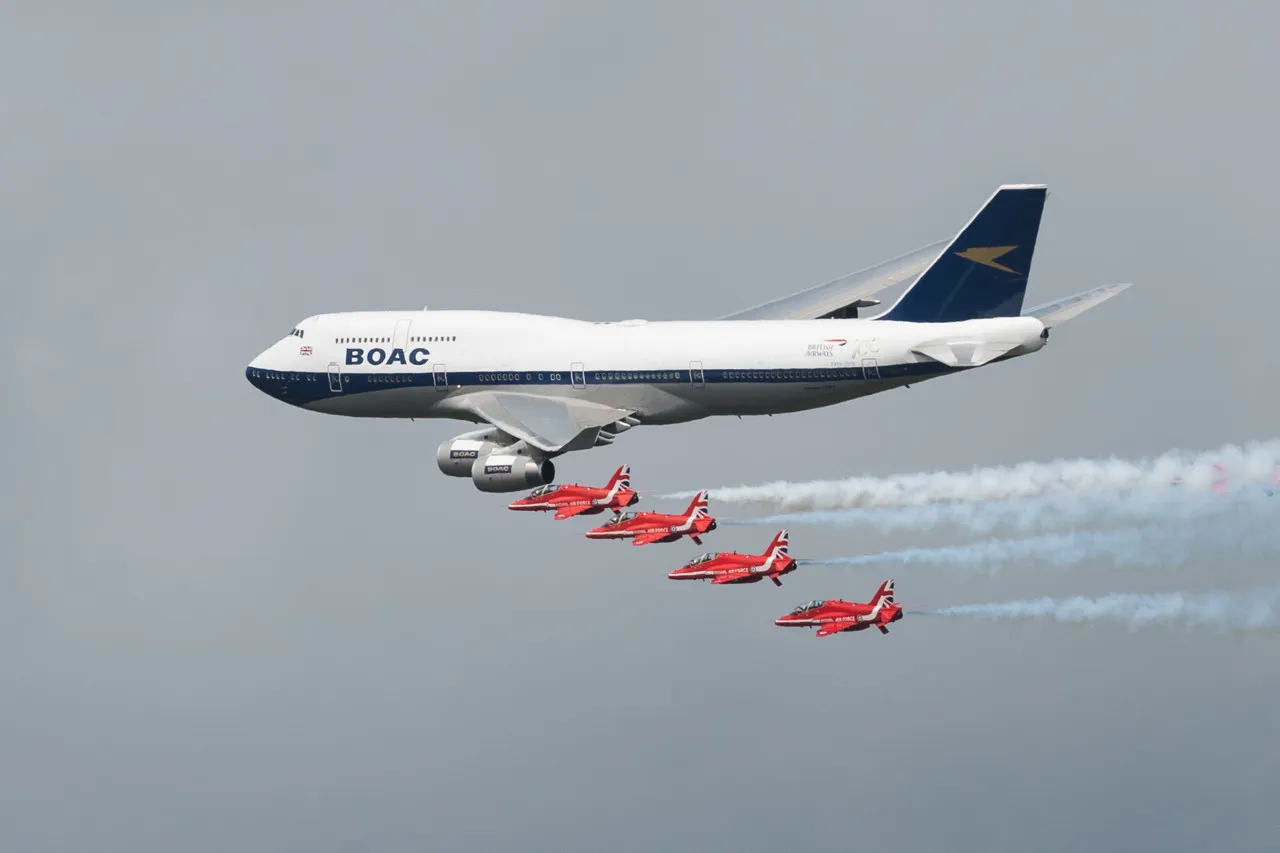
British Airways to retire its 747s immediately
Jul 17, 2020

British Airways has announced the immediate retirement of its iconic Boeing 747 fleet, a decision influenced by the changing landscape of air travel and the impact of the COVID-19 pandemic. The airline had previously planned to phase out the aircraft by 2024, but the ongoing challenges in the aviation sector accelerated this timeline. The 747, known for its distinctive hump and long-haul capabilities, has been a staple in British Airways' operations for decades. As the airline pivots towards a more sustainable future, this move marks the end of an era for both the airline and aviation enthusiasts worldwide.
British Airways has announced the immediate retirement of its iconic Boeing 747 aircraft, marking the end of an era for one of the airline industry’s most recognizable symbols. The decision comes as part of a broader strategy to modernize its fleet and transition towards more fuel-efficient aircraft. This move has significant implications for aviation enthusiasts and the airline's operations worldwide.
The Legacy of the Boeing 747
The Boeing 747, often referred to as the "Jumbo Jet," has been a staple in British Airways' fleet since its introduction in the 1970s. Renowned for its distinctive hump and large capacity, the 747 has played a crucial role in connecting travelers across the globe. As the airline moves forward with its fleet modernization plans, the retirement of the 747 marks the conclusion of a remarkable chapter in aviation history.
Reasons Behind the Retirement
Several factors have contributed to British Airways' decision to retire its 747s:
| Factors | Description |
|---|---|
| Fuel Efficiency | The newer aircraft models being introduced by British Airways are significantly more fuel-efficient, reducing operational costs and environmental impact. |
| Passenger Demand | Changing travel patterns and a shift in passenger demand towards smaller, more efficient aircraft have influenced the decision. |
| COVID-19 Impact | The pandemic has accelerated the need for airlines to reassess their fleets, with many opting to retire older models that are less economically viable. |
Impact on Passengers
For passengers, the retirement of the 747 may mean a change in their flying experience. While the aircraft is beloved for its spaciousness and comfort, British Airways is committed to ensuring that the transition to newer aircraft maintains high standards of service. The newer models are designed to enhance the flying experience with modern amenities and improved cabin layouts.
Frequent flyers may also notice changes in route offerings, as British Airways adjusts its services to align with the capabilities of its new fleet. The airline has emphasized its dedication to providing seamless travel experiences, even as it phases out its iconic Jumbo Jets.
Chart: Fleet Transition Overview
To better understand British Airways' fleet transition, the following chart outlines the timeline and types of aircraft being introduced:
| Year | Aircraft Model | Notes |
|---|---|---|
| 2021 | Boeing 787 Dreamliner | Introduced for long-haul routes, known for fuel efficiency and passenger comfort. |
| 2022 | Airbus A350 | Modern aircraft with advanced technology and eco-friendly features. |
| 2023 | Boeing 777X | The latest in the 777 series, offering enhanced performance and an updated cabin experience. |
Future of British Airways
As British Airways embarks on this new chapter, the airline is focused on sustainability and innovation. The retirement of the 747s is just one part of a larger initiative to reduce carbon emissions and enhance operational efficiency. By investing in a modern fleet, British Airways aims to remain competitive in the evolving airline industry.
The airline is also exploring ways to improve customer experience through technology and service enhancements. With the introduction of new aircraft, passengers can expect upgraded in-flight entertainment systems, improved seating options, and a more streamlined check-in process.
Conclusion
The immediate retirement of British Airways' Boeing 747s is a significant milestone in the airline's history. While it marks the end of an iconic aircraft, it also paves the way for a more sustainable and efficient future. As the airline transitions to a modern fleet, travelers can look forward to a new era of flying that prioritizes comfort and environmental responsibility.
For those who have cherished memories aboard the 747, the legacy of this remarkable aircraft will endure in the hearts of aviation lovers. British Airways remains committed to honoring this legacy while looking ahead to the future of air travel.
Related Articles

Explore Thailand: The Best Islands to Visit for Paradise, Adventure, and Relaxation

The Ultimate Guide to the Best Islands in Thailand for Your Next Getaway

Do babies need passports? How to get a passport for a newborn

How to get a U.S. passport fast: here’s how to expedite the process

What is Mobile Passport Control: 5 reasons why you should use it

SENTRI vs. Global Entry: A detailed guide

Do you need a passport to go to the Bahamas? Let’s find out

Do you need a passport to go to Mexico? A detailed guide

Do you need a passport to go to Canada? We got the answer

Do You Need a Passport for a Cruise: An Essential Travel Guide

Booster Seat Requirements: All the Rules to Follow in Your Rental Car

What Are the World’s Most Powerful Passports, and How Does Yours Rank?

How to Take a Passport Photo at Home: A Helpful Guide

You've got to have heart! Southwest's new livery

Your opinion: Should water be free on low cost carriers?

Young women bolder than guys as solo travellers
